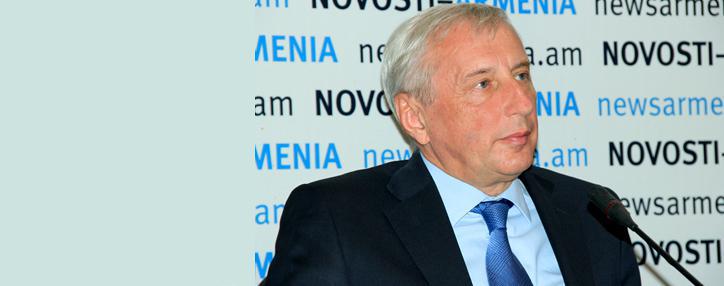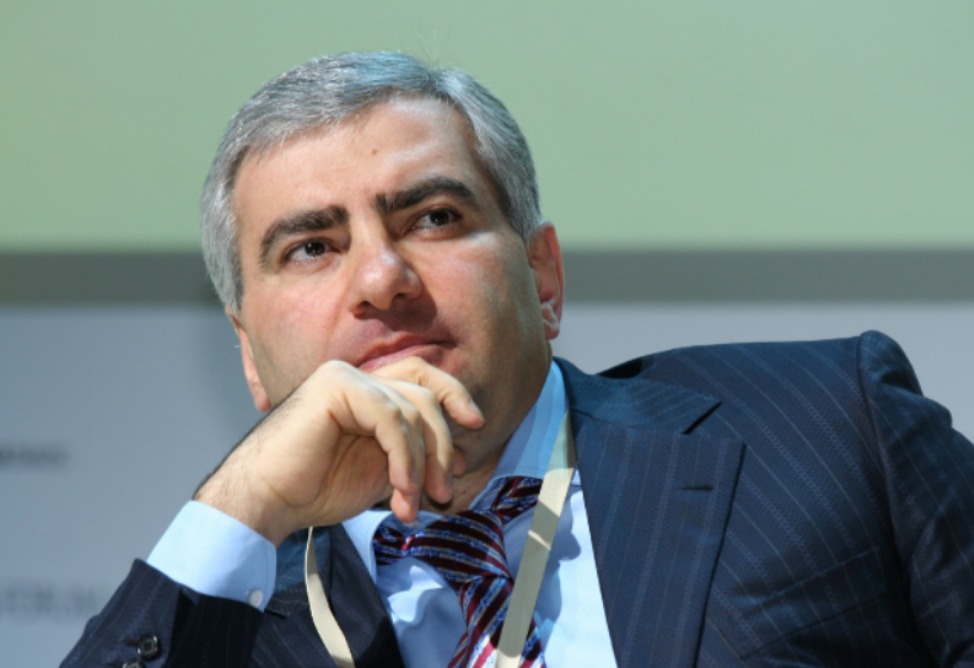Eurasian and Euro integration courses of Armenia shouldn’t be opposed to each other- RF ambassador
20.11.2012,
18:58
Eurasian and European integration courses of Armenia’s foreign policy should not be opposed to each other, Russia’s ambassador to Armenia Vyacheslav Kovalenko said.

YEREVAN, November 20./ARKA/. Eurasian and European integration courses of Armenia’s foreign policy should not be opposed to each other, Russia’s ambassador to Armenia Vyacheslav Kovalenko said.
According to him, the European integration course is actively developing in Armenia, and the republic is just about to sign an agreement on “a deep and comprehensive free trade zone” with the EU and Association Agreement.
“It is a very important, perspective course. At the same time, Armenia is developing integration relations within the Eurasian space embracing Russia, Belarus and Kazakhstan,” the ambassador told reporters on Tuesday.
He reminded that Yerevan had already ratified an agreement on a free trade zone with the Commonwealth of Independent States (CIS, former Soviet republics) members. The talks are carried out around Armenia’s participation in integration projects within the Eurasian Union.
“While discussing this issue in Moscow, the presidents agreed on the existence of some specific moments for Armenia to participate in the Eurasian projects, the commissions were set to consider Armenia’s participation,” Kovalenko said.
There are different viewpoints related to this issue. Some of them state Armenia can’t be a member of the Customs Union with Russia and the Eurasian Union member states, as it has no common borders with these countries.
“I believe there is no logics or economic sense in this. I believe these issues can be solved, there are many examples which prove the opposite. Armenia has no border with the EU member states either, however, it is negotiating on the integration processes, and no one says it is impossible,” the ambassador said.
According to Kovalenko, both these courses, the Eurasian and European, do not contradict to each other in terms of the integration processes.
“They should complement each other. We live in the globalization period, when the ties between states, unions are becoming universal. I think both of these integration projects, European and Eurasian, will become popular,” Kovalenko said.
The diplomat also said there may be some kind of a competition in this process, particularly between business entities, and integration models themselves.
“We live in a market system, and Armenia is not an exception,” he noted.
Nevertheless, as for a small state, it is beneficial for Armenia to develop integration processes in these both directions. “The time will show how the matters will be. But in any case, these courses should not be opposed to each other,” the Russian ambassador said. -0-



